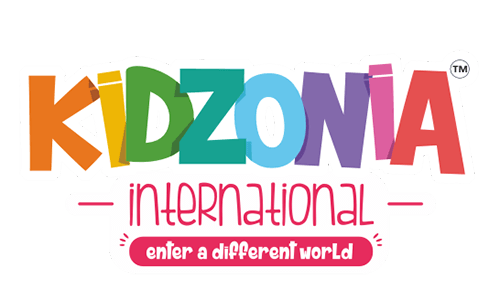In a rapidly evolving world, grasping the intricacies of finance has become paramount, even for our youngest learners. As we delve into the significance of the Hyundai IPO in India, it is essential to ponder how we can introduce financial literacy to children. At Kidzonia, the best preschool in Hyderabad, we believe that laying a strong foundation in financial knowledge can empower the next generation to navigate economic landscapes confidently.
The Significance of the Hyundai IPO
The recent Initial Public Offering (IPO) of Hyundai has garnered immense attention in the Indian market, capturing the interest of investors and financial enthusiasts alike. For children, understanding the concept of an IPO is a vital stepping stone towards comprehending the broader dynamics of the stock market. An IPO represents a company’s debut in the public trading arena, enabling it to raise capital from a diverse pool of investors.
This event is not merely a financial transaction; it symbolizes a company’s growth aspirations and potential for innovation. By familiarizing children with the Hyundai IPO, we can introduce them to essential financial concepts such as investment, valuation, and the risks associated with the stock market. This knowledge equips them with the tools to make informed decisions in the future.
Financial Literacy: A Crucial Life Skill
In today’s world, where financial literacy is often overlooked in traditional education systems, it is imperative to start imparting this knowledge at a young age. Understanding financial principles fosters critical thinking, enhances decision-making skills, and instills a sense of responsibility in children. At Kidzonia, the top Montessori school in Hyderabad, we integrate financial education into our curriculum to ensure children are well-versed in these fundamental concepts.
The Basics of Stocks and Economics
1. Understanding Stocks
Stocks represent ownership in a company. When a child learns about stocks, they comprehend that purchasing a share equates to owning a fraction of that company. This understanding can be likened to owning a piece of a delicious pie; the larger the piece, the more control and influence one has over the entire pie.
When we discuss the Hyundai IPO, we illustrate how individuals can become shareholders in a renowned automobile manufacturer, thereby participating in its success and growth. This interactive learning approach not only makes financial concepts more relatable but also ignites a spark of curiosity in young minds.
2. The Concept of Economics
Economics, in its essence, explores how societies allocate resources to meet needs and desires. Children should be acquainted with basic economic principles, such as supply and demand, market dynamics, and the impact of consumer behavior. By incorporating these principles into our teaching at Kidzonia, we encourage critical thinking and problem-solving skills.
Imagine teaching children about supply and demand using their favorite toys. When a new toy is released and becomes popular, its demand surges. However, if only a limited quantity is available, the price might increase, leading to discussions about value, scarcity, and decision-making.
Engaging Children in Financial Discussions
At Kidzonia, the best international preschool in KPHB, we emphasize engaging children in discussions about financial matters in an age-appropriate manner. Here are some effective strategies to introduce financial concepts:
1. Interactive Games
Games serve as a powerful tool for learning. By incorporating financial-themed games, children can simulate buying and selling activities, grasping the nuances of trading and investments. For instance, a simple stock market game can teach children about fluctuations in stock prices, helping them understand the relationship between risk and reward.
2. Storytelling
Children love stories. By weaving financial concepts into captivating narratives, we can capture their imagination. For example, narrating a story about a young entrepreneur who successfully launches a lemonade stand can teach children about costs, pricing, and profits while making it relatable and fun.
3. Visual Aids
Using visual aids such as charts and infographics can enhance comprehension. Illustrating concepts like the stock market, supply and demand, and economic cycles visually allows children to absorb information more effectively. At Kidzonia, we utilize colorful charts and graphs to explain these concepts in a captivating way.
4. Real-Life Examples
Connecting financial concepts to real-life situations helps solidify understanding. Discussing current events, such as the Hyundai IPO, can provide children with context. We can explain how individuals and families invest in companies and how these investments can lead to future financial stability.
5. Encourage Questions
Fostering an environment where children feel comfortable asking questions promotes curiosity. By encouraging inquisitive minds, we can guide them in exploring financial topics further. This engagement not only deepens their understanding but also nurtures a lifelong love for learning.
The Role of Schools in Financial Education
Educational institutions play a pivotal role in shaping children’s understanding of financial matters. As a leading nursery school near Nallagandla, Kidzonia is committed to integrating financial literacy into our curriculum. We recognize that knowledge is power, and equipping children with the necessary tools to navigate their financial futures is crucial.
Building a Financial Foundation
Establishing a strong financial foundation early in life can lead to informed decision-making later. By learning about investments, savings, and responsible spending, children develop a sense of financial responsibility. This foundation will serve them well in their adult lives, allowing them to make sound financial choices.
Collaboration with Parents
Parents play a vital role in reinforcing financial education at home. Kidzonia encourages collaboration between parents and educators to ensure that financial concepts are consistently communicated. Hosting workshops and seminars for parents can provide them with insights into teaching financial literacy effectively.
The Future of Financial Education at Kidzonia
As we continue to embrace the significance of financial literacy, Kidzonia remains dedicated to enhancing our curriculum. We aspire to be the best preschool near me, offering innovative programs that empower children with essential skills for their futures.
Expanding Financial Literacy Programs
We aim to expand our financial literacy programs, incorporating various engaging activities that resonate with young learners. From interactive workshops to real-world simulations, our goal is to create an environment where financial concepts come to life.
Collaborations with Financial Institutions
Partnering with financial institutions can provide valuable resources and expertise. We envision collaborating with experts who can conduct workshops and seminars, imparting their knowledge to both children and parents.
Conclusion
In conclusion, understanding the Hyundai IPO and introducing children to the fundamentals of finance is crucial in today’s world. At Kidzonia, the international preschool in KPHB, we recognize the importance of financial literacy in shaping future generations. By integrating engaging activities, real-life examples, and a supportive learning environment, we empower our children to become informed, responsible citizens.
Together, let us embark on this journey of financial education, equipping our children with the skills they need to thrive in an ever-evolving economic landscape. Financial knowledge is not merely an advantage; it is a necessity. With the right tools and support, our children will flourish, ready to face the world with confidence and wisdom.





